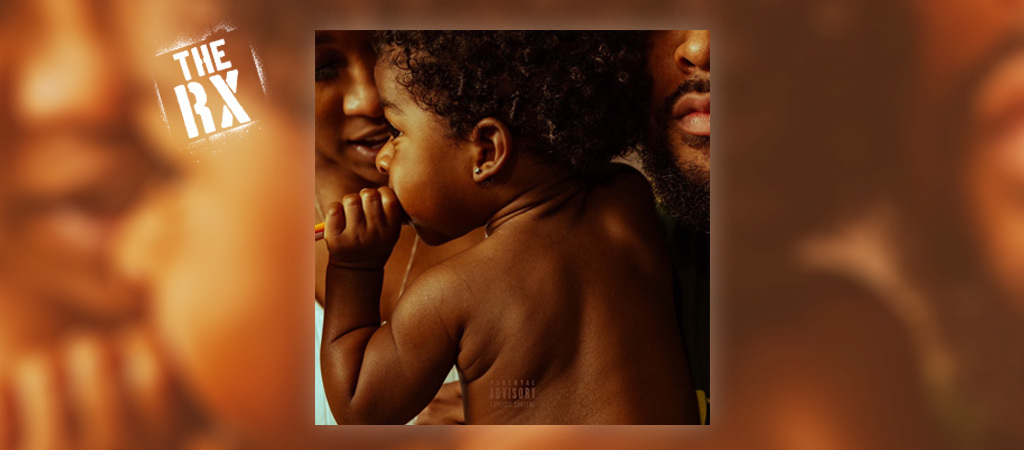
The RX is Uproxx Music’s stamp of approval for the best albums, songs, and music stories throughout the year. Inclusion in this category is the highest distinction we can bestow and signals the most important music being released throughout the year. The RX is the music you need, right now.
The other day, a DJ friend of mine posted a thread on Twitter pointing out how modern hip-hop isn’t really made for dancing. Somewhere along the way, the prevalent vibe for hip-hop songs became either the murky, muddy, drugged-out sound first popularized by Future or the boisterous, triumphant, standing-on-couches style best exemplified by Rick Ross. You can flex, you can jump up and down, or you can zone out to it, but mostly, folks in the club just stand around looking at their phones or filming other people standing around looking at their phones. Sometimes, there’s twerking.
Fortunately, Aminé and Kaytranada are here to save the day. I immediately forwarded my DJ friend the cover of their new album Kaytraminé (which doubles as the duo’s collective soubriquet), which by the group’s own estimation on Twitter is not just the album of the summer, but the literal soundtrack of it. I’m inclined to agree.
As soon as you press play on “Who He Iz,” the album’s opener, the first voice you hear demands that listeners leave their “cool” at the door. As Kaytranada provides a slinky beat reminiscent of Busta Rhymes’ masterful 1997 solo debut “Put Your Hands Where My Eyes Could See,” Aminé spits rapid-fire, boastful verses in the same vein. It’s hard to resist the urge to shoulder shimmy — again, see the video for the above-mentioned Busta Rhymes classic — and they’re just getting started.
Across the album’s 11 tracks, Kaytraminé gets straight to the point: this is music that they want you to dance to. The star of the show in that regard is, of course, Kaytranada’s effervescent, up-tempo beats. The producer has earned a reputation over the past few years as the bridge between dance music, hip-hop, and R&B, adopting a production style equally influenced by house music pioneers as it is by RZA and The Neptunes.
Speaking of The Neptunes, Pharrell Williams makes an appearance here on the bouncy single “4Eva,” lending Kaytraminé the legitimacy of his legacy as the 2000s’ premier dance floor filler. Kaytranada’s impression of his production idol is beyond adroit; that he transforms the beat-making style of the maestro into a distinctive concoction recognizable as a Kaytra original with Pharrell on the song is an impressive feat, marking Kaytranada as a worthwhile successor. “Eye” is another successful effort in this vein, accented by sound effects from Sonic The Hedgehog and featuring frequent Pharrell Phriend Snoop Dogg.
What’s even more impressive: it’s not all champagne fizz and tropical vibes, yet Kaytraminé never loses the vibe of a consummate summertime album. “Westside,” despite channeling the ambiance of one of Ross’s lumbering, barrel-chested anthems, retains a thread of focus on moving the lower anatomy as much as mean-mugging the haters. “Rebuke,” a mellow, top-down cruiser, is as sure to provoke a two-step when listeners reach their destination.
And look, just because Kaytranada’s beats are the highlight doesn’t mean Aminé is out here slouching on the rhymes. If anything, it’s probably harder to write a good party song — let alone eleven of them — that suits the hip-swinging tempos offered here. Think about what kinds of songs have always gotten toes tapping at day parties and nightclubs throughout the warm months. They’re not often specifically about partying. Take, for instance, Snoop and Pharrell’s slew of collabs. They run the gamut from slick-talking gangsta funk to sensual flirtations with the sort of woman you’d meet at a summertime social gathering, directly addressed to enemies or admirers.
In this, Aminé is also a worthy successor. Whether putting down would-be rivals on “Master P,” preaching self-validation on “K&A,” or lamenting lost love on “Rebuke,” he’s good for winking punchlines and adept vibe-setting. The tightrope act between relatable and aspirational is one he’s long mastered, and he puts it to effective use here. By turns, Kaytraminé evokes the atmosphere of a warm night on the coast with a cloudless sky, a packed, small-room venue with free-flowing drinks and vibrant energy, and a pool party where people actually get in the pool. If that ain’t summer, I don’t know what is.
Kaytraminé is out now via Venice Music.









